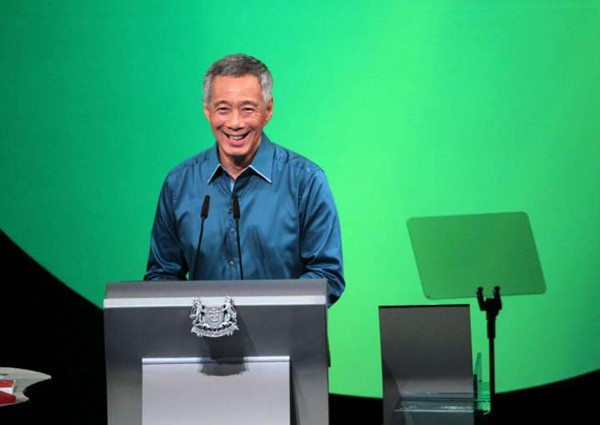
Given that it is the country’s Golden Jubilee, I expect that the Prime Minister will use his 2015 National Day Rally (NDR) speech to zoom out to provide the big picture of how the People’s Action Party (PAP) government has worked with Singaporeans to shift us from an improbable nation to the modern-day miracle of development that it is acknowledged to be.
Since a general election is in the offing too, he may emphasise the broad themes of government action over these past four years as well as the governance values that have guided the PAP as a national movement through these fifty years.
In some sense, the Deputy Prime Minister, Tharman Shanmugaratnam’s two speeches this past week, first at the Economic Society of Singapore on 14 August and second in Parliament on the Auditor General’s recent report on 17 August provided the curtain raiser for NDR speech – the reiteration of the PAP’s commitment to social inclusion and social mobility; to policies enable a broad band of Singaporeans to do better than what their starting points in life would suggest.
There will be an appeal to Singaporeans to continue to take that long view of what government should be about, to recognise that the things that matter to Singaporeans are being attended to, be it affordable transportation, housing and healthcare.
Other areas like gearing up for the workplace of the future, restructuring our economy to being a labour-lean, innovation-driven model, living with increased social diversity and an ageing population will indeed require long-term adjustment from everyone. These are basic governance issues that transcend partisan politics.
Singaporeans and corporate citizens have allowed the PAP the time and trust that was needed at various stages when we had to reboot our economy or retune how society hangs together in the past 50 years. The policies and the cost had to be seen to be fair and the strategic objective, well understood.
In the case of policies between 2011 and 2015, the attempt has been made to strengthen the social compact between government and citizens through a slew of redistributive policies while also easing the pain that the business sector must endure as the “rebalancing” of the government-market-citizen relationship takes place.
Today, in the midst of the details of the many policy initiatives that have been introduced, some easily communicated but many very difficult to do so, the strategic national objectives for them bear repeating. The NDR speech is certainly the platform for that.
On top of that, there are Singaporeans who are still not convinced however that the PAP has “put Singaporeans first”, the sub-theme of the immediate post-GE2011 NDR speech. This, in spite of a series of measures which halved the rate of growth in the foreign workforce numbers, raised the cost of hiring foreign workers, improved how much a job pays through Workfare. Government measures have also made the hiring of senior and disabled workers more attractive through the Special Employment Credit. The Fair Consideration Framework for employment is now in place, while the Progressive Wage Model betters the minimum wage for low-wage workers.
It seems that some feel even more can be done or done differently, which places them at odds with business leaders who worry about rising business costs and the survival of their companies and ultimately, the workers too.
One gauge of the impact is the growth in real income. The concern that Singapore residents at the lower income groups do better is being addressed, in addition to all the support and subsidies they receive from the government for the essentials in life.
The other theme of the speech may be about the other governance values of efficiency and integrity and why Singaporeans must continue to uphold these values. Negative messaging targeted at the Workers’ Party management of the Aljunied-Hougang-Punggol East Town Council (AHPETC) will probably not be welcome. Singaporeans are not as tolerant of what they perceive as hardball politics as they might have been in the past. They want the very thing that the PAP government says it wishes to foster – constructive politics. This may be in good part the reason why the government has wanted state institutions like the Auditor-General and the Courts to call out the problems of AHPETC. Skillful oratory will be needed to ensure that the national message about important governance values will not be upended by partisan politics.
What do I wish for? Clearly, less of an election speech and more one that sets out a strategic vision and purpose for Singaporeans to rise up in their respective fields of endeavour to accomplish even greater things beyond SG50.
Dr Gillian Koh is a Senior Research Fellow at IPS. View her profile here

